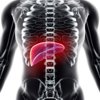Fritextsökning
Artiklar per år
Innehållstyper
-

Samuel Lagercrantz: “Companies that do this successfully will take the lead”
The development of new medicines and medical technologies should not focus too narrowly on prolonging life. It is equally important to develop treatments that relieve pain or eliminate painful symptoms, writes Samuel Lagercrantz in an editorial.
-

Bayer has cut 1,500 roles – so far
German chemical and pharmaceutical group Bayer cut more than 1,500 roles in the first quarter alone– and most of them were management positions.
-

Total pipeline of pharmaceutical companies reaches a record high – 22,921 medicines are currently being developed
Despite the difficult economic times, pharmaceutical companies have never developed as many new drugs as now.
-

Olinkgrundare kan få tungt europeiskt uppfinnarpris
Två av forskarna bakom Olinks succé, Ulf Landegren och Simon Fredriksson, har utsetts till finalister i European Inventor Award 2024 för sina upptäckter inom storskalig proteinanalys.
-

Carl Borrebaeck – professor and serial entrepreneur with a taste for speed
Award-winning cancer researcher, the founder of many listed companies, and constantly in the academic and commercial spotlight for decades. However, Carl Borrebaeck, Professor of Immunotechnology at Lund, is not yet satisfied. “We have a new, potentially
-

Björn Arvidsson: ”Vi måste börja se EU som inrikespolitik”
”Över hälften av alla lagar som stiftas i Sverige kommer från EU-politiken, vilket tydligt visar att förarbetet, möjligheten att påverka både oss och resten av unionen samt de viktiga besluten, sker utanför Sverige.” Det skriver Björn Arvidsson i en krönika.
-

Vaccinpartners på väg att bli rivaler
Franska Valneva och danska Bavarian Nordic, två partners som distribuerat och marknadsfört varandras produkter sedan 2020, kommer snart att bli rivaler inom vaccin mot chikungunyafeber.
-

Ancient DNA provides new insights – “The immune system lost its job”
Ancient bone remains from our ancestors have provided new insights into the prevalence of multiple sclerosis. By looking back in time, researchers can provide a possible explanation for why the disease is more prevalent in northern Europe.
-

Uppgift: Sanofi planerar avknoppning av sina receptfria läkemedel
Den franska läkemedelsjätten Sanofi uppges ha bett ett antal banker att pitcha för att delta i att hantera företagets planerade avknoppning av sin OTC-verksamhet, enligt källor till Bloomberg News.
-

List: The coolest names in biotech
Hairy beasts, volcanic material and space strolling stand out on a US list of the best biotech company names, and on a list of the coolest names for pharmaceuticals, a Swedish, or at least Swedish-British, drug came out on top.
-

Framtida forskningsanläggningen ESS ska ge forskarna nya insikter på atomnivå
ESS i Lund ska bli ett viktigt verktyg för materialforskare i framtiden. Vi besöker anläggningen för att se hur långt de kommit.
-

Nocebo – the evil twin that makes you feel worse
The placebo effect is well known in healthcare, but not so its opposite: nocebo. “The effect is small, but it can have major repercussions,” says Uppsala researcher Charlotte Blease, co-author of a book on the phenomenon.
-

Ny chefredaktör på Läkartidningen
Åsa Uhlin har utsetts till ny chefredaktör på Läkartidningen efter avgående Pär Sandell.
-

Radioactive tracer to measure effect of drug towards Crohn’s disease
A radioactive tracer developed by Astra Zeneca and the Karolinska Institutet may play a major role for patients with Crohn's disease. That is the belief of Maria Belvisi at AstraZeneca.
-

”We need compatibility“
Penilla Gunther, founder of Fokus Patient and chair of the European Patient Safety Foundation, hopes that the forthcoming life science strategy will focus on efficient and secure management of patient data and equal access to medicines.
-

"Patienterna får ingen jämlik behandling inom landet"
Satsningar på effektiv och säker hantering av patientdata och jämlik tillgång till läkemedel är något av vad Penilla Gunther, grundare av Fokus Patient och ordförande för European Patient Safety Foundation, önskar av den kommande life science-strategin.
-

Radioaktivt spårämne ska visa effekt av läkemedel mot tarmsjukdom
En radioaktiv markör som utvecklats av Astra Zeneca och Karolinska institutet kan spela en stor roll för patienter med Crohns sjukdom. Det menar Maria Belvisi, Astra Zeneca.
-

Anna Törner: ”Orphan Designation – the "petite robe noire" of drug development”
It is easy to cling to various regulatory incentives, like orphan designation, and other expedited pathways, without understanding what they truly mean or whether they are indeed right (or wrong) for the current project, Anna Törner writes in a column.
-

Lars Lannfelt får europeiskt pris för Alzheimersforskning
Bioarctics grundare Lars Lannfelt har nu tilldelats det europeiska priset European Grand Prix av La Fondation Recherche Alzheimers för sin forskning på Alzheimers sjukdom.
-

Första behandlingen mot vanlig leversjukdom godkänd i USA
Efter många år av utveckling har nu för första gången en behandling mot fettlever med leverskada godkänts av det amerikanska läkemedelsverket FDA.
-

Venom from the deathstalker carries radiopharmaceuticals to the brain
In order to target cancerous brain tumours with radionuclides, the problematic blood-brain barrier must first be crossed. Life Science Sweden has visited a KI researcher who is trialling an unusual approach ‒ using scorpion venom.
-

“Life science is important on a personal level”
From the High Coast to the Government Offices. Jeanette Edblad is a native of Ångermanland, and since September last year, she has been Head and Coordinator of the Government’s Life Science Office.
-

Samuel Lagercrantz: ”Will the Swedish life science strategy be updated with precision?”
What will the Swedish government focus on in the life science strategy that is being updated? And what should be prioritized in the strategy? Life Science Sweden's editor-in-chief Samuel Lagercrantz highlights three areas.
-

Marie Gårdmark: ”Interchangeable biological medicines – soon in a pharmacy near you?”
”Generic competition is an effective way to push down drug prices, but it has not worked equally well for biosimilars. Biosimilars require more time to gain market share compared to generics, and new biosimilars do not always lead to lower prices” writes